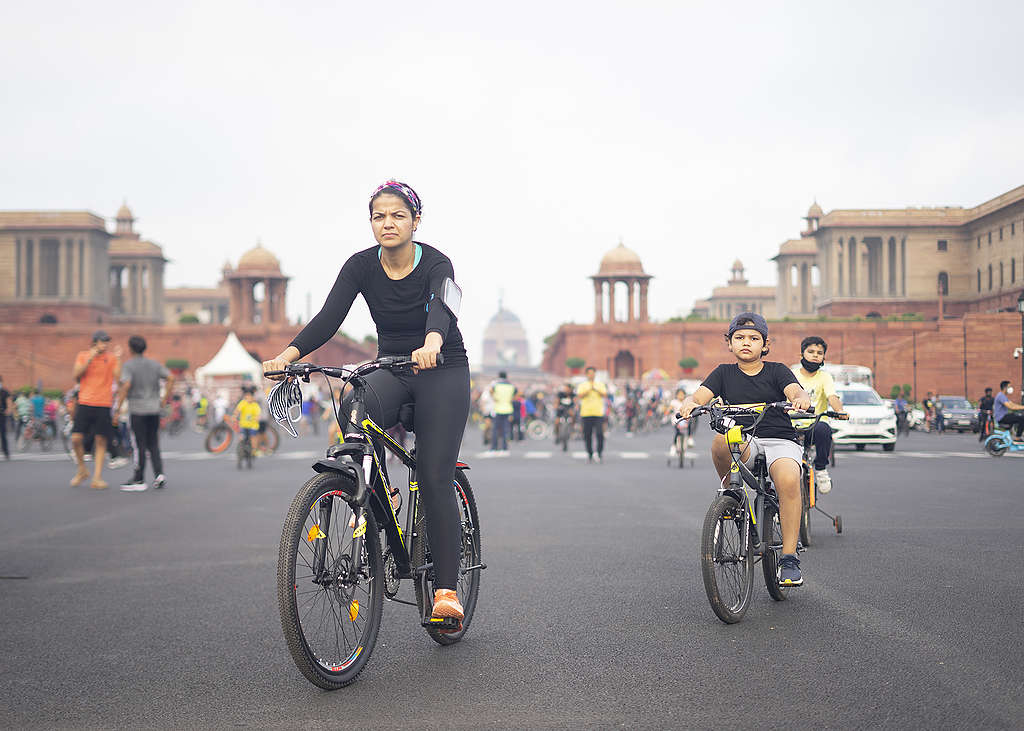The existing centralised electricity infrastructure has failed to deliver electricity to all parts and classes in the city and the government needs to implement a sustainable solution on an urgent basis.
Over the last couple of months Greenpeace has reached out to Congress, BJP and Aam Admi Party with its demand to:
1. Announce ambitious and effective solar rooftop policy with implementable road-map in year 2014.
2. Direct all the power distribution companies in Delhi to meet their obligation under Renewable Purchase Obligation (RPO) target set up by Delhi Electricity Regulatory Commission in 2014.
3. Make mandatory for industrial and commercial users with consumption above 1MW to use solar energy to meet minimum 20% of their electricity needs.
4. Announce a programme for all government departments and institutions to adopt solar to meet their electricity demand.
5. Announce a programme to power public streetlights through solar, especially areas unsafe for women and areas with intermittent power supply, thus bringing about safety and equity within the state.
“It is the responsibility of the Government to provide a safe and secure environment to the citizens along with fulfilling their basic needs. Electricity is a basic necessity and ensuring sustainable 24/7 electricity to the entire city must be a top priority for the new Government. The rising electricity tariff and unscheduled power outages has left the Delhiites deprived. Adopting renewable energy can ensure reduced power outages even during peak summers as well as electricity tariff stabilization in the long run. Lack of electricity also leads to creation of dark spots in the city which jeopardise the safety and security of the people, especially women and children. Socio-economically marginalised areas are more vulnerable and hence power cuts should completely stop there,” said Anand Prabu, Campaigner, Greenpeace India.

Donate today or consider remembering Greenpeace in your Will.
